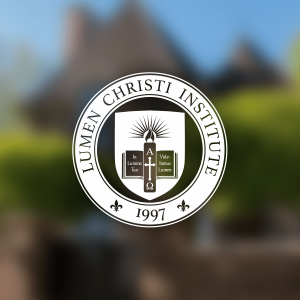Open to current students and faculty. Others interested in participating should contact info@lumenchristi.org. All registrants will receive pdfs of the selected readings, which should be read in advance of the class. An optional wine and cheese reception will follow.
Following Kant’s insistence that individuals must be treated as ends in themselves and not means to something else, Hannah Arendt objected that Augustine’s subordination of the love of people to the love of God did not allow a true love of one’s neighbor. Citing his distinction between love as enjoyment (frui), which alone applied to God, and love as use (uti), which was the proper love of neighbor, she argued that, for Augustine, the love of neighbor was merely a means to attain salvation for oneself. Is Augustine guilty of instrumentalizing the love of neighbors? In his system, are individuals treated merely as objects of charity by which, like rungs on a ladder, the Christian ascends in virtue and merit to God? Can his absolute prioritization of the love of God as the condition for loving one’s neighbor still allow for love of the neighbor that genuinely appreciates persons as individuals?
Readings:
Arendt, Hannah. Love and Saint Augustine. Eds. Joanna Scott and Judith Stark. Chicago: University of Chicago Press, 1996. Pp. 36-44.
Augustine of Hippo. On True Religion 1,1-3,5; 11,21-12,25; 20,38-24,45; 32,59-40,76; 46,86-54,106. Trans. Edmund Hill. The Works of Saint Augustine A Translation for the 21st Century. Hyde Park, NY: New City Press, 1990.
Augustine of Hippo. Confessions IX.viii (17) – xiii (37). Trans. Henry Chadwick. Oxford: Oxford University Press, 1991.
Schedule:
2:00-3:20 | Session 1
3:20-3:40 | Break
3:40-5:00 | Session 2
5:00-5:30 | Reception


